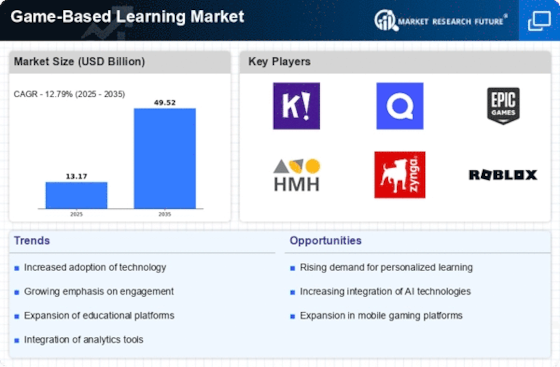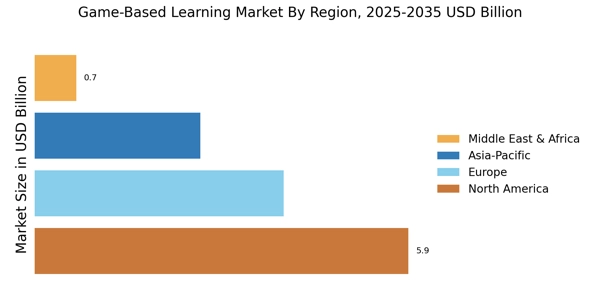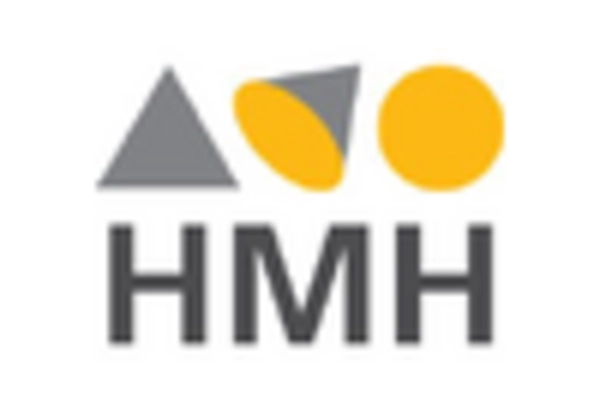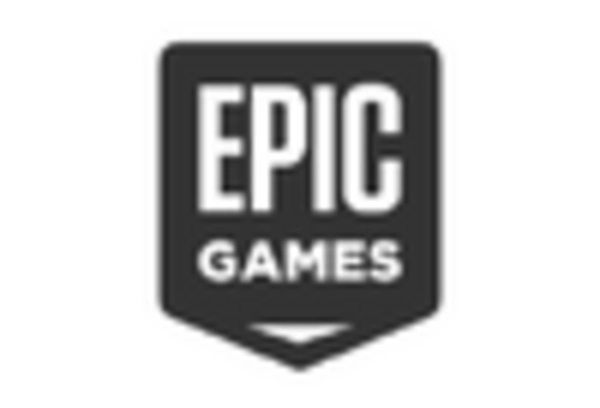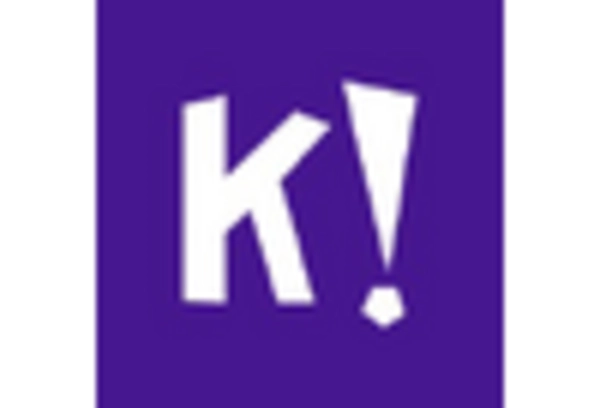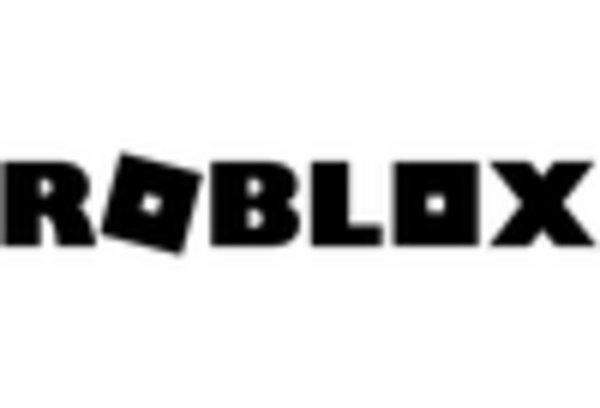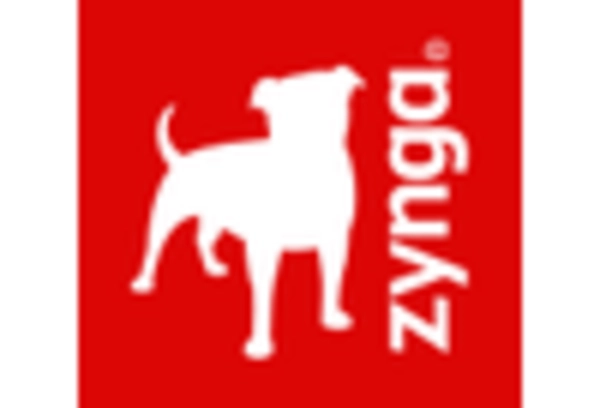Integration of Technology in Education
The Game-Based Learning Market is significantly influenced by the rapid integration of technology in educational settings. With advancements in digital tools and platforms, educators are increasingly adopting game-based learning as a viable teaching strategy. The proliferation of devices such as tablets and smartphones has made it easier for learners to access educational games anytime and anywhere. According to recent data, the market for educational technology is projected to reach substantial figures, indicating a robust growth trajectory. This technological integration not only enhances the learning experience but also aligns with the preferences of modern learners, thereby propelling the Game-Based Learning Market forward.
Rise of Personalized Learning Experiences
The Game-Based Learning Market is increasingly characterized by the rise of personalized learning experiences. Tailoring educational content to meet individual learner needs has become a focal point for educators and developers alike. Game-based learning platforms often incorporate adaptive learning technologies that adjust the difficulty and content based on user performance. This personalization not only enhances learner engagement but also improves educational outcomes. As more institutions recognize the value of personalized education, the Game-Based Learning Market is expected to expand, with a growing number of solutions designed to cater to diverse learning styles and preferences.
Growing Demand for Remote Learning Solutions
The Game-Based Learning Market is currently experiencing a growing demand for remote learning solutions. As educational institutions and organizations seek to provide flexible learning options, game-based learning offers an effective means to engage learners in a virtual environment. The ability to access educational games remotely allows for continuous learning opportunities, which is particularly appealing in today's fast-paced world. Market data suggests that the remote learning segment is expanding rapidly, with projections indicating significant growth in the coming years. This trend underscores the potential for the Game-Based Learning Market to thrive as it adapts to the needs of remote learners.
Increased Engagement through Interactive Learning
The Game-Based Learning Market is witnessing a surge in engagement levels among learners, primarily due to the interactive nature of game-based methodologies. Traditional educational approaches often struggle to maintain student interest, whereas game-based learning fosters an immersive environment that captivates users. This heightened engagement is reflected in studies indicating that students participating in game-based learning exhibit improved retention rates and academic performance. As educational institutions increasingly recognize the benefits of gamification, the demand for game-based learning solutions is expected to rise. This trend is likely to drive innovation and investment in the Game-Based Learning Market, as developers create more sophisticated and engaging educational games.
Focus on Skill Development and Competency-Based Learning
The Game-Based Learning Market is experiencing a shift towards competency-based education, where the emphasis is placed on skill development rather than traditional rote learning. This approach aligns with the needs of employers who seek candidates with practical skills and problem-solving abilities. Game-based learning provides a platform for learners to develop these competencies in a simulated environment, allowing for experiential learning. As organizations and educational institutions prioritize skill acquisition, the demand for game-based learning solutions is likely to increase. This trend suggests a promising future for the Game-Based Learning Market, as it adapts to the evolving educational landscape.


